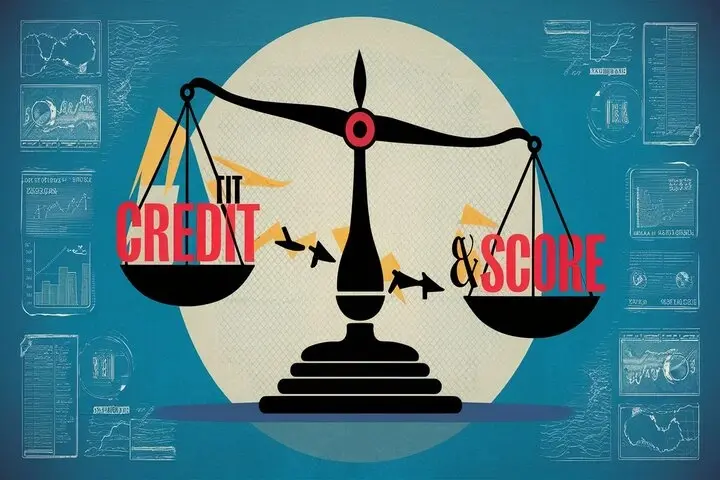-
Posted on: 29 Jul 2024

-
This isn’t to say that national debt relief is harmless; how damaging it is to your credit depends on the type of relief program you opt for.
If there are high levels of debt and the amount that one has to pay for the outstanding balance is very huge and beyond their capability to meet each month, then joining a national debt relief program may be appealing. However, is important to assess the various implications of enrolling in any of these programs and the implications on one’s credit. If you’re interested in national debt relief and how it can impact your credit score and report, this is the article for you.
The National Debt Relief is a portmanteau of the National Debt Relief Foundation and the National Debt Relief company.
This is a service provided by national debt relief companies that seek to help you negotiate with your creditors so that you can be allowed to pay a smaller amount of the money you owe. Their fee is normally in the form of a percentage of the overall enrolled debt amount that you pay. To participate in the debt relief program you enroll and make payments to the debt relief company rather than to your creditors and the company is the one to contact your creditors and negotiate to pay off the debt for an amount less than the original balance.
The Cons of Your Credit
Even though paying off debt for less than what was due is a good thing financially, remember that it will have an impact on your credit status which you have to be willing to cope with. Here are some of the major ways national debt relief damages your credit:
It is important to note that the payment periods mentioned here are for the end of the reporting period and may be subject to extension if payments are made later than expected
This means that as soon as you stop making payments to your creditors individually and sign up for a debt relief program, they become more delinquent. Creditors report to the credit referencing agencies that you have failed to make monthly payments as was agreed even though the debt relief company could be paying the dues on your behalf. When you pay for something, many times in the month, this significantly reduces your credit rating.
Again, this is opposite to what should be expected; people’s credit utilization ratio goes up.
Not making direct payments also means your balances are not decreasing and it would look as follows. They added to the total amount owed the credit limit, which is used to calculate the credit utilization ratio that is one of the factors making up 30% of FICO scores. The credit utilization rate another factor that contributes to a negative score is also affected by a higher ratio.
Additional notes to the accounts: settlement of debts
While it is uncommon, for some accounts that a debt relief company settles for an amount less than what you owed, the creditors are likely to report the accounts with a statement that they were settled for less than the original amount owed. This shows other potential future lenders that you did not repay the borrowed amount fully. Having many settled debt accounts may appear as if you are a risky customer to lend money to and this should be avoided at all costs.
The higher probability of a trial and wage deductions
If you begin reducing your payments to creditors without their permission, more often you will face legal suits from the creditors, and your wages will be attached. Moreover, unpaid taxes can be also collected by wage garnishment and property liens even if the participant is enrolled in the debt relief program. Banka suits and garnishments over your salary also give you a permanent blot on your credit.
I understand that this means asking for my credit score to be pulled but how much could my score drop?
As we showed before, it is rather hard to estimate how much your peculiar credit score may decrease when signing up for national debt relief. Nevertheless, it remains unclear whether this observation applies to all four factors or simply means that your score will drop by at least 100 points. Those who begin with a weak score below 600 or in the lowest 600s will be expected to drop even more to even lower very bad credit brackets below 550.
This means that you might experience a drop between 100 to 300 points when establishing the program and late payments will continue to drop the score gradually or all the accounts becoming delinquent at once. The more negative information that is reported to your credit reports over time, the worse your credit rating and the harder it is to secure credit without high interest rates.
Is it a wise decision to go for it, let us weigh the pros and cons
In sum, national debt relief addresses the immediate debt problem of containing ballooning debt levels but negatively impacts credit scores for years. It is important to ponder before you sign up for the program and ensure that you are aware of these long-term effects on your credit rating.
However, for those who simply want any method to get out of debt without regard for the credit implications then debt relief is still advantageous. However for those who ever wish to be able to get back into future car loans, mortgages, and decent credit in the future, yes your credit is going to be badly hit for quite some time until the negative information drops off slowly and gradually from your credit reports.
Also when making your final decision, weigh other available choices such as credit management plans, transfer of your balance to low-interest credit cards, credit management sessions or even taking up a debt consolidation loan. They are not easy solutions and in many ways leave you worse off than before but some allow you to repay debt with better terms than the current one and do not obliterate your credit capacity to get reasonable credit rates in the future.
Credit issues? We have the solution—call (888) 803-7889 for immediate help!










